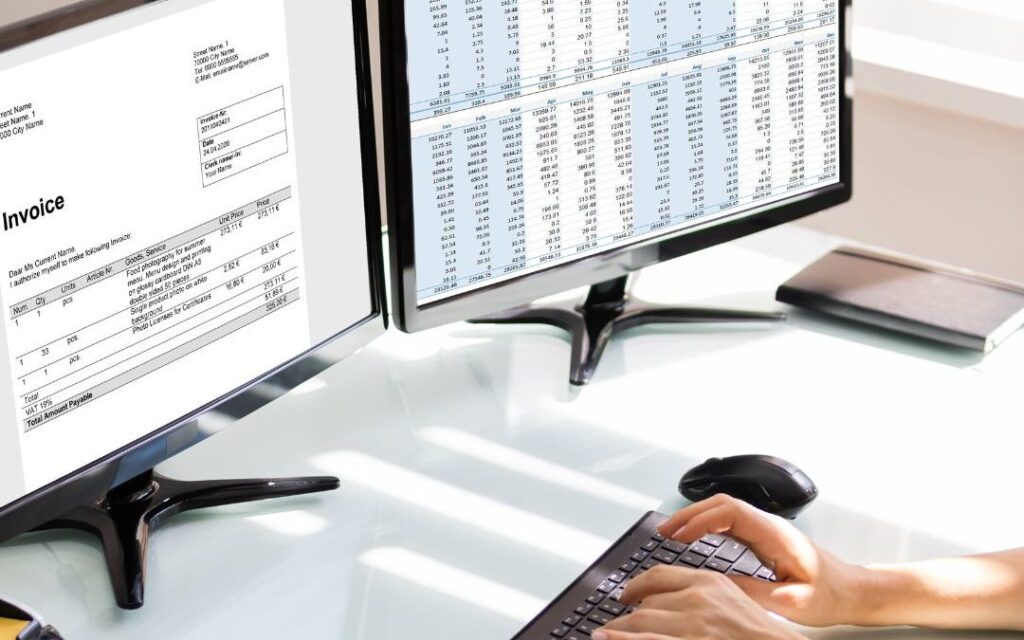As the last grapes are pressed and the aroma of fermentation fades, wineries enter a crucial period: year-end. This is the time to shift focus from the vineyard to the ledger, ensuring your financial records are in order and setting the stage for a prosperous year to come.
At Protea Financial, we understand that year-end accounting can feel overwhelming, especially for wineries juggling the demands of production, sales, and distribution. That’s why we’ve compiled this comprehensive checklist.
It breaks down essential accounting tasks into manageable steps. With a little bit of organization and some proactive planning, you can navigate this critical period with confidence and ensure your winery’s financial health.
1. Reconcile Your Accounts
Begin by reconciling all your bank accounts, credit cards, and loan accounts in detail. This involves cross-referencing your internal records and bank statements to look for any anomalies and verify transactions were recorded.
Reconciliation helps to detect and prevent errors, fraud, and gives an insight on your cash flow. For automating the process and eliminating manual steps, choose accounting software with bank reconciliation functionality.
2. Review and Reconcile Inventory
Real time inventory monitoring is critical for wineries, influencing both production scheduling and financials. Physically count the items on hand and compare them with your records to check for any type of discrepancies.
Accurate inventory valuation is necessary for accounting purposes and for key production and sales decisions. Get stock management software that works with your accounting software so you can automate inventory management and avoid mismatches.
3. Account for all Expenses
Keep all your costs throughout the year organized and documented. This includes everything from grapes and staff costs to marketing and electricity.
It’s important to keep track of expenses accurately if you want to calculate your real cost of goods sold (COGS) and profitability. Use an expense-management software or create a robust system to group and track costs over the course of the year.
4. Review and Analyze Sales Data
Examine your sales figures to find patterns, the best-selling items, and areas of weakness. This data can drive pricing strategies, promotions, and even future manufacturing decisions.

Sales data can help you to discover profitable products, drive the right sales funnels, and be in control with data-driven choices for your future. Utilize your POC and e-commerce platform to create comprehensive sales reports.
Examine sales by product, channel, and customer segment. The more data you go through, the more information you have to keep your winery focused on growing in the coming year.
5. Prepare Financial Statements
Generate key financial statements, including your balance sheet, income statement, and cash flow statement. These statements provide a snapshot of your winery’s financial health and performance.
Financial statements are essential for assessing your profitability, liquidity, and overall financial stability. They are also crucial for securing financing or attracting investors.
Utilize accounting software to generate accurate and timely financial statements. You can also consider consulting with bookkeeping professional like we have here at Protea Financial to analyze your statements and gain valuable insights.
6. Manage Accounts Receivable and Payable
Make sure to document and monitor any invoices that have not been paid. Similarly, go over and pay all invoices to your vendors.
If accounts receivable and payable are effectively handled, you’ll get paid on time, cash flow is stable, and relationships with your customers and suppliers are built. Develop a system to monitor bills and payments. Be sure to also have accounting auto-reminders and pay-to systems.
7. Depreciate Assets
Be sure to take into consideration the cost of depreciation on your winery’s equipment, buildings, and vehicles. This means deferring the value of these assets over their life cycle.
Depreciation is the way your assets have depreciated over time and how that impacts profitability. Talk to your accountant or bookkeeper about the depreciation methods and rates applicable to your assets.
8. Comply with Tax Requirements
Bring together all the records and data to complete your year-end taxes. These include all applicable federal, state, and local taxes that apply to your winery.
Accurate, on-time tax filing helps to make sure the taxes are done properly and not penalized. Make sure to talk with a tax expert to make sure you have all the tax liabilities taken care of and are using any potential deductions or credits you may qualify for.
9. Review and Update Your Budget
From the year-end summary, calculate and modify your new year budget. It includes sales estimates, budget projections, and financial targets.
Your budget can help show you how to get on track with money by taking care of necessary expenses, measure what you’re earning, and decide how to move forward throughout the year. Use budgeting software or meet with your financial professionals to develop a plan that is realistic and feasible.
10. Secure Your Financial Data
Take measures to protect your financial information from unauthorized use, theft, or damage. It often means backing up your data regularly and taking cybersecurity measures.
It is important to secure your banking information for privacy, security against fraud, and business continuity. Have a professional look at your cybersecurity risks and implement the right safeguards.

The Protea Financial Advantage
We know accounting at year-end can be a daunting and time-consuming process. At Protea Financial, we offer comprehensive bookkeeping solutions to wineries, such as:
- We will handle all your year-end bookkeeping duties with utmost precision, security, and timeliness.
- We offer deep analysis to help you make proper decisions for the future of your winery.
- Provide tax preparation services and investment advisory to reduce your tax bills and remain compliant.
Let Protea Financial Help You with Your Winery’s Year-End Accounting Practices
End of the year accounting is important for wineries. It offers a valuable view of the results and sets the tone for future growth. By following this checklist and consulting experienced experts like the team here at Protea Financial, you can make it through this period at ease and maintain your winery’s bottom line. Contact Protea Financial today to find out more about how we can support your winery’s year-end accounting.



